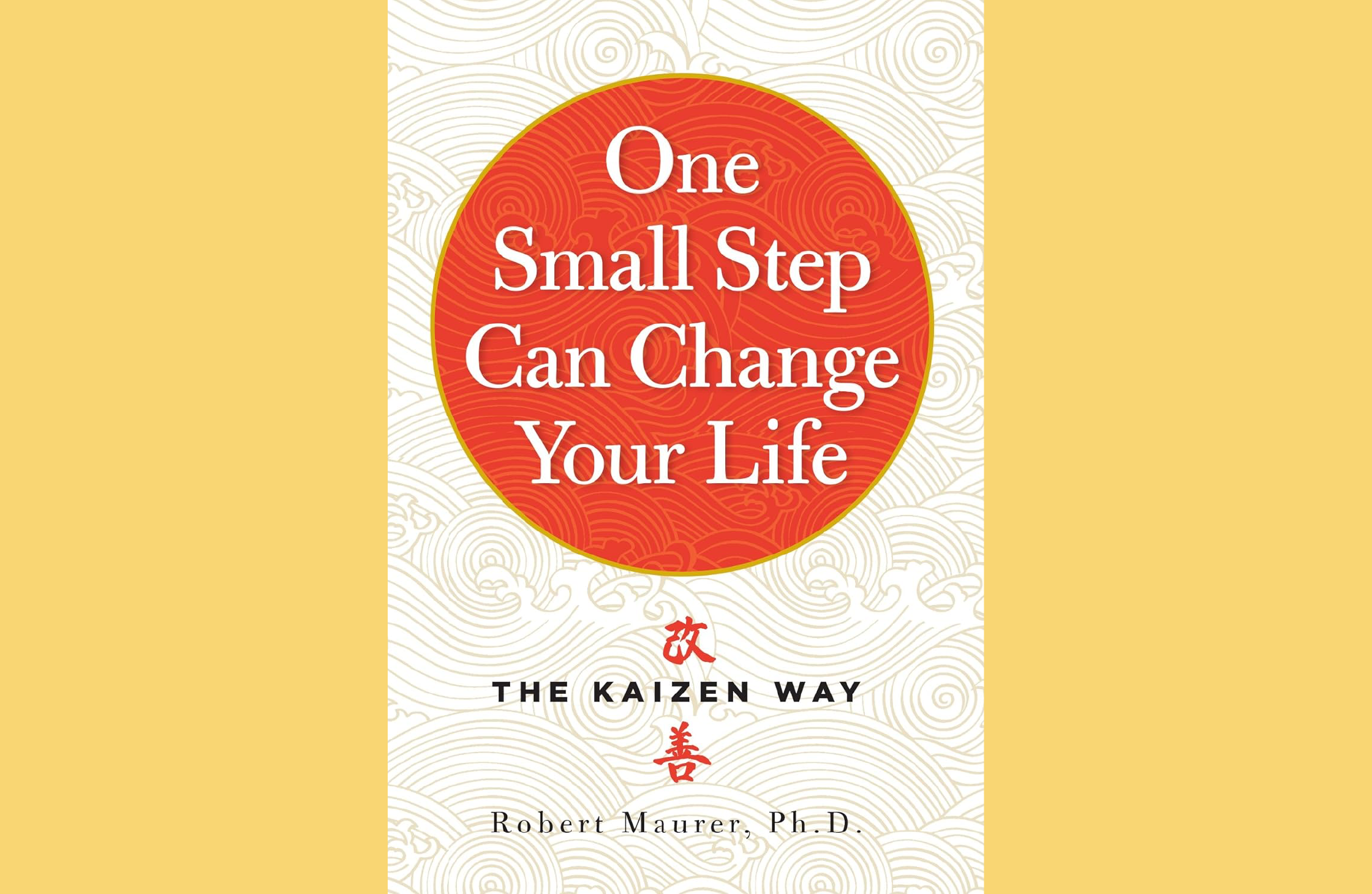You Will Live 26,378 Days: you can Continuously Improve Every Valuable One
Discover the transformative power of Kaizen philosophy in "One Small Step Can Change Your Life" by Robert Maurer—practical steps for real change. Achieve big goals through small, consistent actions. Start your journey today.

The theory of Kaizen, or continuous improvement, is influential due to its emphasis on incremental, persistent, and systematic changes to enhance efficiency, productivity, and quality. Research in manufacturing, healthcare, education, and software development demonstrates its positive impact on productivity, quality, patient care, educational outcomes, and software development processes.
While specific studies vary, the principles of Kaizen align with psychological theories on sustainable behavior change, emphasizing the effectiveness of minor, incremental improvements. Implementation success depends on organizational factors.

The best way to start thinking about Kaizen is as if it's a daily habit. Just like brushing your teeth and having breakfast. Start every day by asking, 'What can you improve today?' Let's face it: the global average lifespan was around 73 years - 26378 Days—twenty-six thousand three hundred seventy-eight chances to grow and improve on yesterday.
The Power of Small Steps:
At the heart of Kaizen lies the power of small steps. It's about taking consistent, actionable measures toward your goals. Think about it: every grand achievement results from small, determined steps. Whether aiming to learn a new language, improve your fitness, or enhance your skills, starting small and being consistent can make a difference.
Setting Clear Goals:
Start by setting clear, specific goals. These goals should be like beacons, guiding your efforts and giving you a sense of direction. Instead of vague aspirations, create specific, measurable, attainable, relevant, and time-bound (SMART) goals. For instance, if you aim for better physical fitness, set a goal to exercise for 30 minutes daily. This clarity transforms your desires into actionable tasks.
Consistent Effort and the Kaizen Mindset:
Consistency is the key to success in any endeavor. Allocate a specific time each day for your improvement efforts. Remember, it's not about perfection but about progress. The Kaizen mindset emphasizes that small, consistent efforts lead to substantial, lasting change. So, whether you're learning to play a musical instrument or honing your writing skills, practice regularly. Every day's effort compounds to create significant results over time.
Learning: A Lifelong Journey:
Kaizen celebrates the value of continuous learning. In our fast-paced world, staying updated and acquiring new skills is essential. Embrace the joy of learning; read books, take online courses, and attend workshops. Learning not only enhances your knowledge but also boosts your confidence and adaptability.
Measuring Progress and Seeking Feedback:
Tracking your progress is vital. Use journals, charts, or apps to monitor your journey. Assess your achievements regularly. Additionally, don't hesitate to seek feedback from mentors, friends, or experts. Constructive criticism helps you identify blind spots and refine your strategies, propelling you toward your goals.
Embracing Failure: Your Stepping Stone to Success:
Failure isn't the end; it's a valuable lesson. Embrace failure as a stepping stone to success. Each setback provides insights and opportunities for growth. As Thomas Edison famously said, "I have not failed. I've just found 10,000 ways that won't work." Analyze your failures, adjust your approach, and keep moving forward.
Mindfulness and Gratitude:
Mindfulness is a powerful tool in your Kaizen toolkit. Being present in the moment enhances self-awareness, allowing you to identify habits and emotions. Practicing gratitude daily uplifts your spirit, fostering a positive mindset that fuels your journey toward improvement.
Celebrating Progress:
Acknowledge and celebrate your achievements, no matter how small. Celebrating your progress reinforces positive behavior and motivates you to keep going. Treat yourself to reaching milestones; it could be a relaxing day out or indulging in a hobby you love.
Adaptability and Sharing Your Journey:
Stay adaptable. Be open to change and explore different approaches. What works for one person might not work for another. Experiment, learn, and adjust your strategies accordingly. Also, share your journey. Inspire others with your progress. Engaging with a community creates a supportive environment that fuels everyone's growth.

Suggested Kaizen Reading:
Here is a list of books that incorporate the theme of Kaizen, the Japanese theory of continuous improvement:
- "The Toyota Way" by Jeffrey K. Liker: This book explores the management principles and business philosophies of Toyota, emphasizing the importance of Kaizen in its success.
- "Gemba Kaizen: A Commonsense, Low-Cost Approach to Management" by Masaaki Imai: This classic book delves into the concept of Gemba (the place where value is created) and how continuous improvement can be achieved at the grassroots level.
- "Kaizen: The Key to Japan's Competitive Success" by Masaaki Imai: Another book by Imai provides a detailed explanation of the Kaizen philosophy and its application in various industries.
- "One Small Step Can Change Your Life: The Kaizen Way" by Robert Maurer: This book applies the principles of Kaizen to personal development, demonstrating how small, continuous steps can lead to significant changes and achievements.
- "Kaizen Strategies for Successful Organizational Change: Evolution and Revolution in the Organization" by Jeffrey Russell: This book explores how Kaizen strategies can be utilized to facilitate successful organizational change, emphasizing the importance of continuous improvement during transitions.



